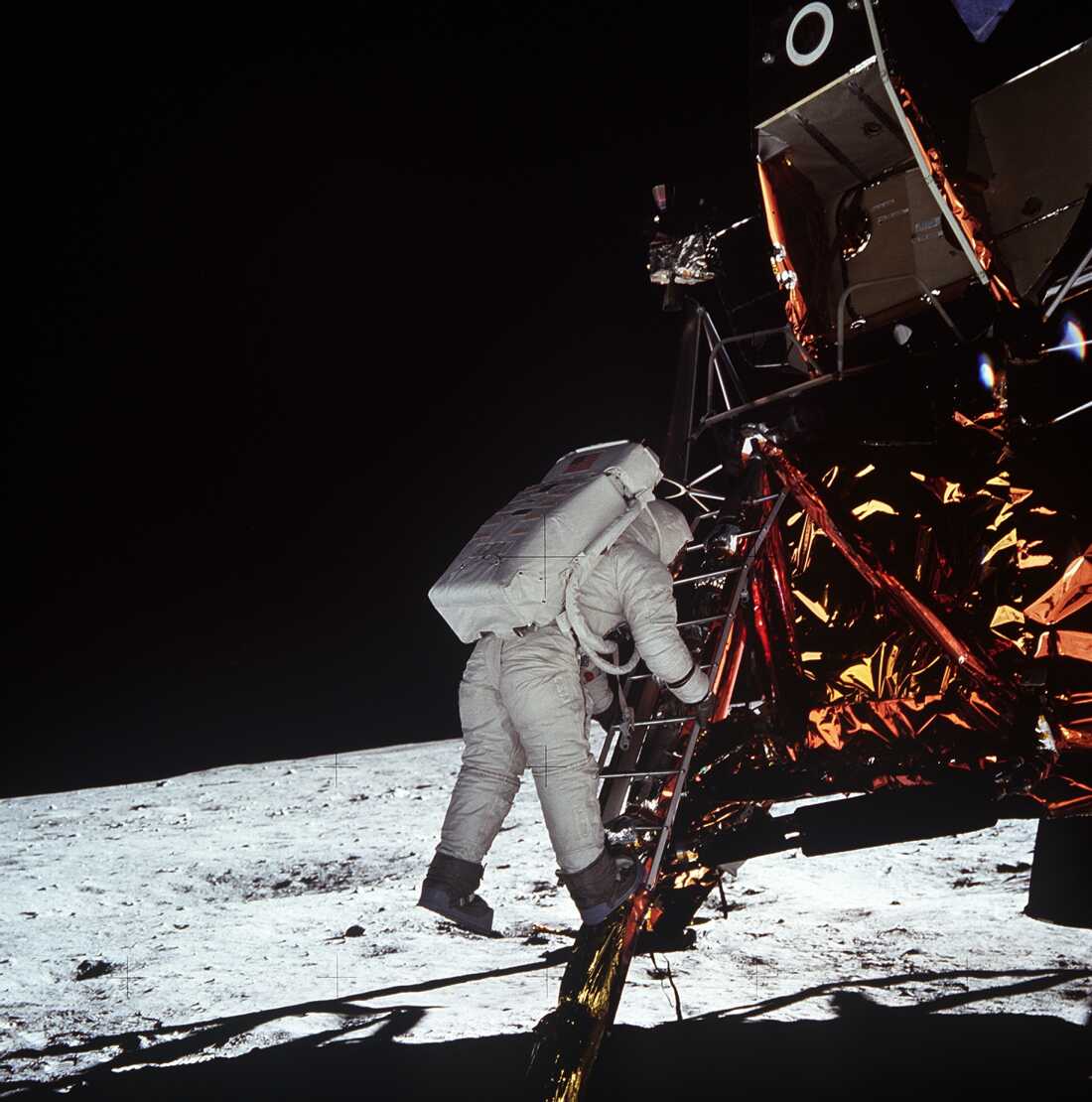Martin Van Buren served as U.S. president from 1837 to 1841. Some would say he was not rather more than an OK president.
Nationwide Archives/Getty Pictures/Hulton Archive
cover caption
toggle caption
Nationwide Archives/Getty Pictures/Hulton Archive
From Buenos Aires to Bangkok, Montreal to Moscow, the languages could differ, however almost each taxi driver or road vendor on the planet understands one phrase made well-known throughout a raucous U.S. presidential marketing campaign almost 200 years in the past.

It is “OK”: a tiny phrase that punches effectively above its weight. It means each “sure” and “I perceive.” It is a noun: I received the OK for this story from my editor; a verb: She OK’d it and an adjective: The story turned out OK.
It is even a easy interjection: OK! Sufficient with the grammar lesson!
NPR’s London-based correspondent Lauren Frayer has reported from dozens of nations in Europe, the Center East and Asia, and he or she says, “irrespective of my unhealthy language abilities, ‘OK’ is type of universally understood.”
OK is a very American invention. It began out as a joke, however has develop into one of the vital extensively used phrases on the planet.
This week’s installment of Phrase of the Week traces its evolution.
The place did OK come from?
The origin of ‘OK’ remained a thriller for a lot of its existence — and even in the present day, some nonetheless dispute probably the most accepted rationalization. Through the years, theories have abounded: Some traced it to French or Scottish roots. Within the Sixties, people singer Pete Seeger popularized one other thought, singing that “Choctaw gave us the phrase OK” — a extensively held perception on the time, however one which finally proved mistaken.
“Early efforts to ascertain the origin of OK had been imaginative at greatest, with out documentation, and infrequently simply silly,” in accordance with a 2011 article within the Dictionaries Journal of the Dictionary Society of North America.

Most students now fall in line behind the conclusions of Allen Walker Learn, a Columbia College English professor who set out within the Sixties to settle the thriller of OK’s origin. He adopted its path again to a playful misspelling of “all appropriate” as “oll korrect.” The time period first appeared within the Boston Morning Publish on March 23, 1839, though “it had in all probability been used colloquially earlier than that,” in accordance with Doug Harper, who created the On-line Etymology Dictionary. It germinates from a linguistic fad of the time — a playful development not not like Cockney rhyming slang wherein folks “would abbreviate widespread phrases with deliberate, jocular misspellings,” he says.
In July 1839, the phrase seems in a paragraph written by the editor of The Baltimore Solar. He thanks “some nameless gentleman for a present of bottles of wine … and he pronounces the wine ‘O.Ok.,'” Harper says.
Nevertheless it was the next 12 months, 1840, and the reelection marketing campaign of President Martin Van Buren that actually introduced the phrase into its personal. Mark Cheathem, undertaking director of the papers of Martin Van Buren and professor of historical past at Cumberland College, notes that “conveniently … O.Ok. lined up with a nickname that was connected to Van Buren — ‘Outdated Kinderhook,'” a reference to the president’s birthplace in Kinderhook, N.Y. Political nicknames had been in vogue on the time, Cheathem provides. Van Buren’s predecessor, Andrew Jackson, was referred to as “Outdated Hickory,” and his 1840 rival, William Henry Harrison, was dubbed “Outdated Tippecanoe.”
Van Buren’s supporters fashioned “O.Ok. Golf equipment” geared toward energizing the candidate’s political base, Cheathem says. Some contemporaneous accounts recommend the golf equipment additionally added “muscle” to the marketing campaign. Van Buren even started signing paperwork with “O.Ok.” to strengthen the affiliation.
Harper notes that OK was wielded by each events within the 1840 election, with some newspapers claiming on the time that it originated from a spelling blunder by Jackson — meant to mock the previous president, a fellow Democrat like Van Buren. The story went that Jackson’s postmaster normal, Amos Kendall, was accused of mishandling accounts. When Jackson personally verified them, he instructed that they be bundled and marked “OK” — as a result of, as he mentioned, “Amos is all appropriate.”
How has OK modified over time?
For sure, OK caught on. It was simple to say and might be utilized in a wide range of conditions to indicate easy settlement, affirmation, understanding or approval, making it helpful in a technological age that started with Morse code and telegraphs.
“It is an ideal headline phrase as a result of it is so quick,” Harper says. “In print it is troublesome to determine how [to] spell it out,” he says. Alternatively, “it was additionally an abbreviation you can write with simply two letters … and it covers quite a lot of floor, meaning-wise.”
Its utilization within the twentieth century grew due to American troopers stationed overseas, says Harper. “In case you’re on the lookout for the worldwide unfold, I might actually begin with the 2 world wars and proper after them,” he says.
Round 1945, Harper says he sees examples of “folks both celebrating or complaining that the French are beginning to use OK, which might be the final word [barrier], I suppose, for such American slang.”

Astronaut Edwin E. Aldrin, Jr., lunar module pilot, descends the steps of the lunar module ladder on July 20, 1969, as he prepares to stroll on the moon.
NASA/Getty Pictures/Hulton Archive
cover caption
toggle caption
NASA/Getty Pictures/Hulton Archive
Through the Sixties, NASA astronauts popularized the phrase “A-OK” to sign that each one programs had been go. And 56 years in the past this week, “OK” was among the many first phrases spoken from Earth to the Moon. As the tv sign switched on and Neil Armstrong ready for his well-known “one small step,” Houston introduced: “OK, Neil, we are able to see you coming down the ladder now.”
Even so, it hasn’t been all easy crusing for OK. The phrase began out as an abbreviation, or extra exactly, an initialism — the place preliminary letters are pronounced individually (versus an acronym, the place the preliminary letters are pronounced as a phrase). However that is led to confusion about tips on how to render it. Is it O.Ok., OK, or okay?
Harper says he prefers “okay” as a result of “it does not break up the web page with quite a lot of capitals,” however NPR largely adheres to Related Press model, which recommends “OK” with no durations.
Why does OK matter in the present day?
At the moment, OK is “very in all probability probably the most widely known phrase on the planet,” in accordance with Merriam-Webster.com.
Though historically it is a phrase that is been spoken greater than written, it reveals up on lists of probably the most used SMS phrases, together with its even-shorter — and extra controversial — counterpart, merely “Ok.” In fact, there was the dismissive dis of “OK, Boomer” a number of years in the past.

In case you wished to do away with the phrase in the present day, it could be just about unimaginable, Harper says. Its imprecision is a plus. “In road speak and informal interactions, vagueness has extra worth than precision,” he says. “We maintain reinventing these [kinds] of phrases.”








